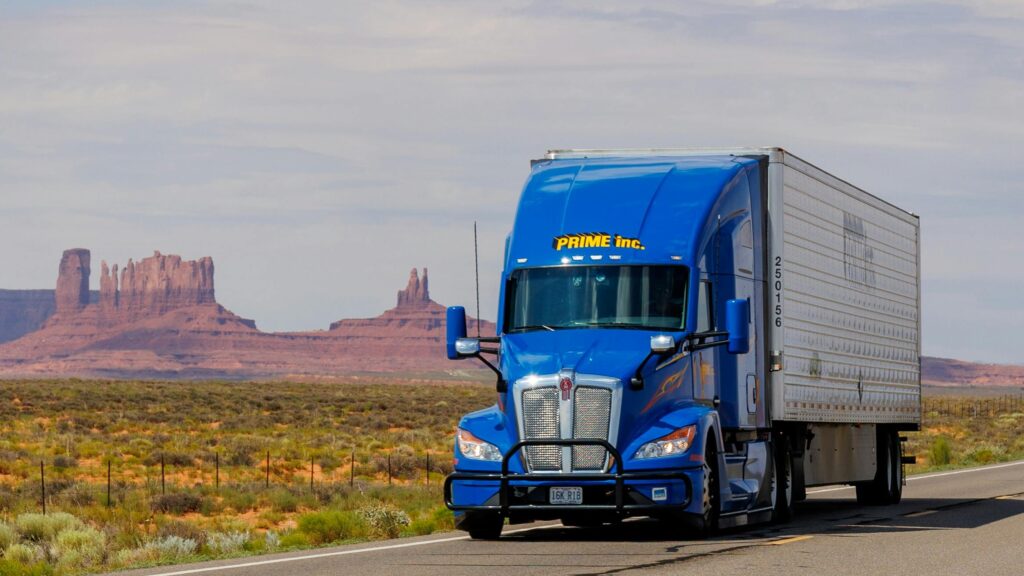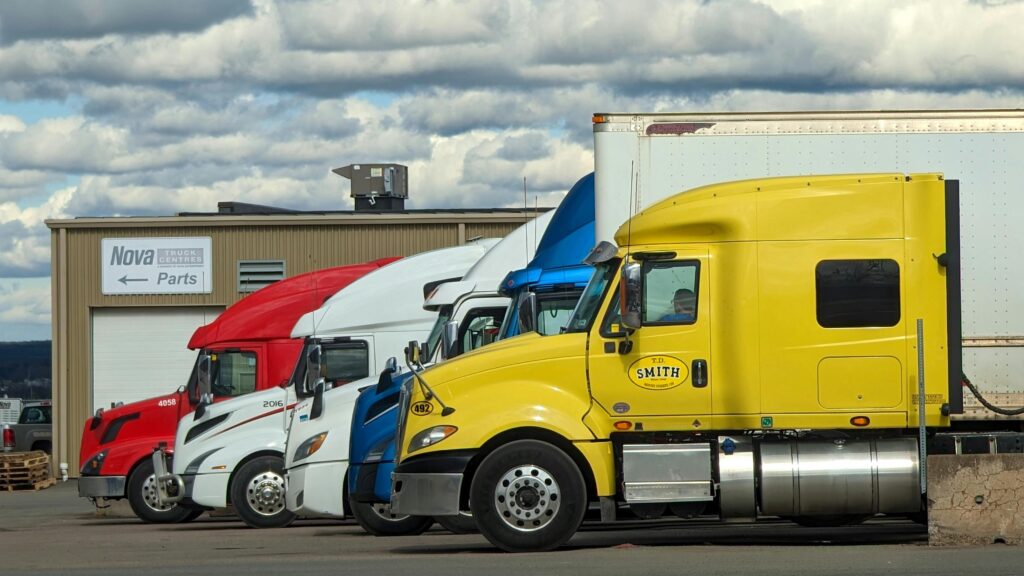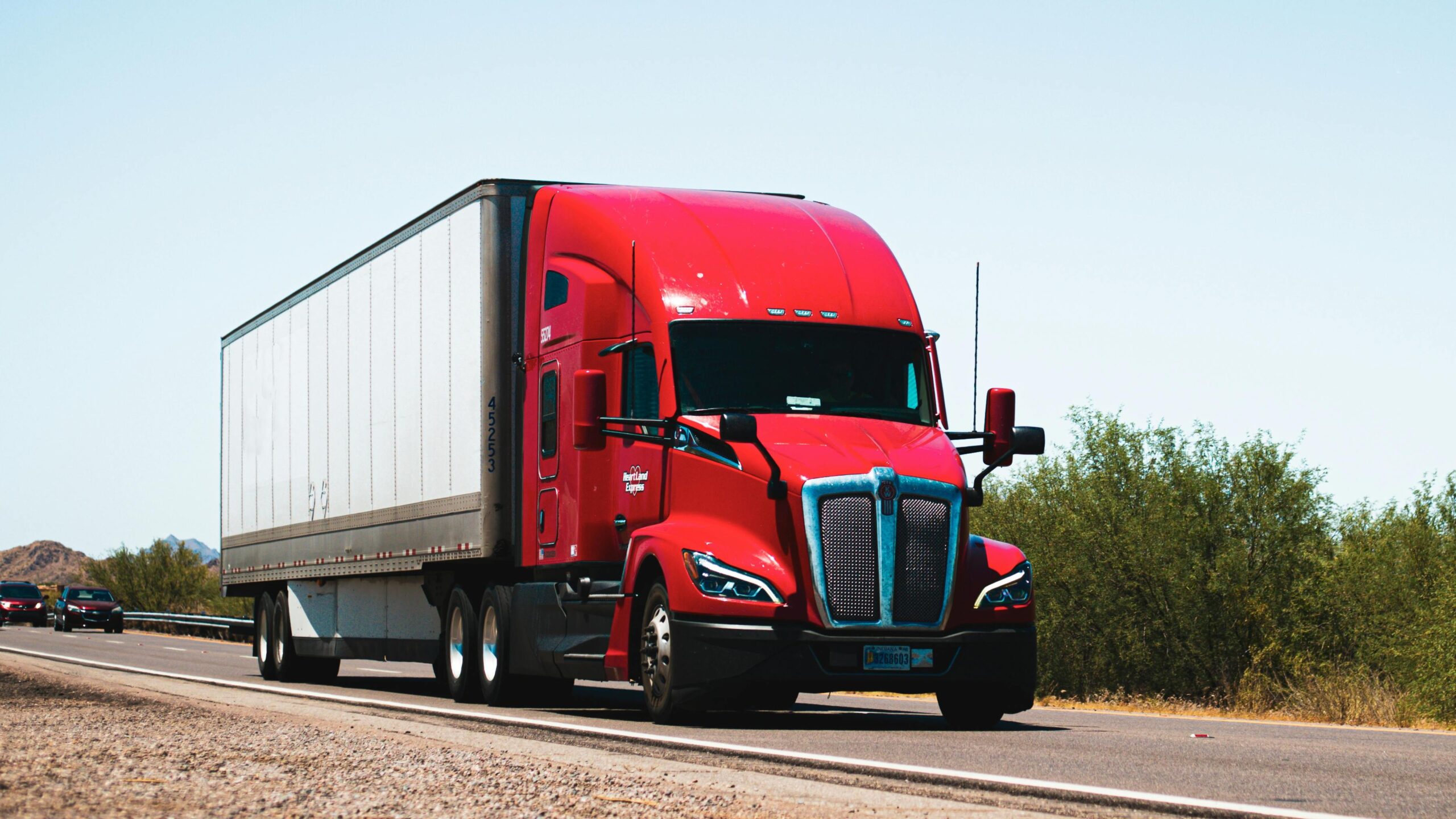When it comes to defying the laws of physics among Tesla’s EVs, the Tesla Semi stands out as a true game-changer. This electric tractor-trailer, designed to haul up to 80,000 lbs, breaks barriers once thought impossible for heavy-duty vehicles. In an industry filled with skepticism about electric trucks, Tesla is proving the doubters wrong — and revolutionizing long-haul transportation in the process.
The Skepticism Around Electric Heavy-Duty Trucks
Traditionally, electric trucks have faced serious doubts, mainly because of the immense challenges posed by battery weight and capacity. Even Bill Gates expressed skepticism, arguing that despite breakthroughs in battery tech, EVs are unlikely to replace diesel trucks, cargo ships, or planes for heavy-duty work due to bulky and heavy batteries.
However, Elon Musk famously dismissed Gates’ concerns, bluntly stating that Gates knows nothing about electric trucks. Tesla isn’t just building any battery-powered truck — Musk is aiming to create a revolutionary big rig that will transform the trucking industry.

Tesla Semi: The Truck That Changes Everything
Tesla’s vision is bold: a truck so compelling that it keeps truck drivers in the industry, addressing the ongoing driver shortage in the U.S. For the first time, an electric truck can travel 800 miles on a single charge, saving over 1 million gallons of diesel fuel, equating to about $3.5 million in savings.
Elon Musk often calls the Semi a “money machine,” and here’s why:
- 800 miles range on a single charge
- Accelerates from 0 to 60 mph in 20 seconds, even fully loaded
- Energy consumption of just 1.7 kWh per mile
- Massive fuel and maintenance cost savings for fleet operators
Mass Production Is Finally Here
After years of delays and anticipation since 2017, mass production of the Tesla Semi is officially ramping up. Tesla expects to produce about 10,000 Semis by the end of this year and 50,000 units next year at the new Giga Nevada facility, which is almost fully equipped for assembly.
Why the Confidence in High Production Volume?
- The factory space totals over 9 million square feet (combining existing and new facilities)
- Multiple production lines will operate simultaneously
- On-site battery manufacturing streamlines assembly and reduces logistics delays
- Tesla’s proven expertise in scaling EV production, as seen with the Model Y
How Tesla Semi Compares to Other Electric Trucks
Although other automakers like Volvo, Mercedes-Benz, Daimler, and BYD are producing electric trucks, none come close to the Tesla Semi’s specs and performance.
- Most competitors don’t exceed 500 miles per charge
- Acceleration and power fall short compared to Tesla’s 0-60 mph in 20 seconds
- Tesla’s aerodynamics and energy efficiency remain unmatched
Tesla Semi is the only Class 8 electric truck that combines power, range, and efficiency, making it the clear market leader.
The Upcoming Second-Generation Tesla Semi
The second-generation Tesla Semi promises to be even better, featuring:
- More aerodynamic design improvements
- New mirror designs for better visibility
- An added drop glass to ease interaction at ports
- Faster and more powerful performance
These enhancements are designed to improve driver comfort and efficiency, addressing real-world challenges truckers face daily.

Revolutionary Battery Technology
A major leap forward lies in Tesla’s new battery technology for the Semi. Moving away from the older 2170 cells, Tesla introduces a next-gen HP battery offering:
- Lower manufacturing costs
- Maintained range with less battery energy, thanks to a 7% efficiency improvement
- Lighter battery pack, reducing overall truck weight and operational costs
Contrary to earlier predictions, the new battery is not the 4680 cells used in the Cybertruck, but a different, optimized pack tailored for the Semi’s unique needs.
Impressive Production Efficiency
Producing 50,000 trucks annually means:
- Over 135 trucks produced daily
- Roughly one Tesla Semi every 10-15 minutes
Tesla’s manufacturing pace continues to astonish, with the Model Y production rate reaching one vehicle every 33 seconds. While heavy-duty trucks like the Semi require more manual assembly, Tesla’s approach combines automation and skilled labor for efficiency.
Unmatched Performance on the Road
The Tesla Semi’s specs translate into real-world superiority:
- Climbing a 10% grade at 60 mph fully loaded — no other truck can match this
- Energy consumption of 1.7 kWh per mile, confirmed by major fleet customers such as PepsiCo, Walmart, and DHL
- Fuel cost savings: roughly $0.30 per mile, compared to $0.35 for diesel trucks
Over hundreds of thousands of miles, these savings translate into millions of dollars for fleet operators.
Lower Maintenance Costs and Higher Reliability
Tesla Semi’s simplified electric drivetrain drastically reduces maintenance needs:
- Maintenance cost estimated at just 10 cents per mile
- Diesel trucks average 20 cents per mile
- Fewer moving parts mean less downtime and fewer repairs
This reliability combined with cost savings offers a strong financial incentive for fleet operators to switch to electric.
Environmental Impact: Reducing Carbon Emissions
Tractor trailers make up only 1% of U.S. vehicles, but contribute a whopping 18% of greenhouse gas emissions. The Tesla Semi helps combat this by:
- Saving 1 million gallons of diesel, reducing CO2 emissions by approximately 22,400 tons
- Featuring a drag coefficient of just 0.4, much lower than traditional trucks (above 0.8), improving efficiency
- Utilizing regenerative braking to recover energy on downhill slopes
This eco-friendly design aligns with global sustainability goals and regulatory trends pushing for cleaner transportation.
The Future is Autonomous: Full Self-Driving Tesla Semi
Perhaps the most groundbreaking feature Tesla plans is full self-driving (FSD) capability for the Semi, expected to debut soon.
Why Autonomous Trucks Matter
- Addresses the chronic shortage of truck drivers
- Reduces driver fatigue and increases safety
- Enhances logistics efficiency by enabling longer, safer trips with less human strain
Elon Musk emphasizes that autonomy is essential to the future of trucking, allowing companies to maintain delivery schedules despite labor shortages.
Driver Experience: A New Era in Trucking
Tesla Semi offers a driving experience unlike any other:
- Quiet, smooth, and stress-free ride free from diesel engine noise
- Advanced cabin technology and automated systems reduce physical and mental strain
- Drivers report increased job satisfaction and a desire to stay in trucking longer
This transformation of the driver’s environment could attract a new generation to the profession.
Challenges and Global Expansion
While Tesla Semi’s future looks bright, there are hurdles:
- Regulatory barriers, such as truck size limits in markets like Australia
- Infrastructure upgrades needed to support mass adoption
Nevertheless, Tesla is actively working to expand the Semi’s reach worldwide, promising to reshape global logistics.
Conclusion: The Tesla Semi is a Game-Changer
From fuel and maintenance savings to environmental benefits and driver-centric innovations, the Tesla Semi is poised to revolutionize the trucking industry. With mass production starting and technological advances accelerating, the days of diesel dominance on the highways are numbered.
The Tesla Semi is not just a truck — it’s a symbol of the future of transportation: powerful, efficient, sustainable, and smart.
FAQs
1. What is the Tesla Semi?
The Tesla Semi is an all-electric Class 8 heavy-duty truck designed by Tesla to revolutionize long-haul transportation with zero emissions, high efficiency, and advanced features like full self-driving.
2. How far can the Tesla Semi travel on a single charge?
The Tesla Semi can travel up to 800 miles on a single charge, making it one of the longest-range electric trucks available.
3. When will the Tesla Semi be mass-produced?
Mass production of the Tesla Semi is expected to ramp up in 2025, with around 10,000 units by the end of this year and 50,000 units planned for 2026.
4. How does the Tesla Semi compare to traditional diesel trucks?
The Tesla Semi offers better acceleration, lower operating and maintenance costs, reduced emissions, and a quieter, smoother driving experience compared to diesel trucks.
5. What kind of battery technology does the Tesla Semi use?
Tesla is developing a new, more efficient battery for the Semi, which is cheaper to produce and lighter but maintains the same range thanks to a 7% efficiency improvement over previous battery packs.
6. Can the Tesla Semi climb hills efficiently?
Yes, the Tesla Semi can climb a 10% grade at 60 mph fully loaded, a performance level unmatched by most traditional diesel trucks.
7. What are the fuel savings with the Tesla Semi?
The Tesla Semi has saved over 1 million gallons of diesel fuel, which equates to about $3.5 million in fuel savings for companies already using the trucks.
8. How much does maintenance cost for the Tesla Semi?
Tesla estimates maintenance costs at just 10 cents per mile, about half the cost of traditional diesel trucks, thanks to fewer moving parts and simplified design.
9. Will the Tesla Semi have autonomous driving features?
Yes, Tesla plans to equip the Semi with full self-driving capabilities, which will help reduce driver fatigue and address the trucking industry’s driver shortage.
10. How long does it take to produce a Tesla Semi?
Tesla aims to produce around 135 trucks per day, or roughly one Semi every 10 to 15 minutes, with ongoing improvements that may shorten this time even further.
11. Is the Tesla Semi environmentally friendly?
Absolutely. By saving diesel fuel and reducing CO2 emissions, the Tesla Semi significantly lowers the carbon footprint of freight transport.
12. What companies are already using Tesla Semis?
Major companies like PepsiCo, Costco, Walmart, DHL, and SIA have tested or are operating Tesla Semis, confirming their performance and cost-saving benefits.
13. What challenges does Tesla face in global expansion of the Semi?
Regulatory hurdles, such as truck size laws in countries like Australia, may delay Tesla Semi’s adoption worldwide, but Tesla is actively working to address these challenges.
Read More:
- Tesla tops Cathie Wood’s stock picks, predicts $2,600 surge
- X account with 184 followers inadvertently saves US space program amid Musk-Trump row
- X launches Community Notes feature to bridge diverse perspectives
- Elon Musk Reveals The Tesla Model 2 All-New Launch Date and Tech Secrets Inside
- End of Apple. 2026 Tesla Starlink Pi Tablet is Finally HERE: Elon Musk’s $179 Game-Changer


1 thought on “Tesla Semi Mass Produce FINALLY Begin! 800 Miles Range | Elon Musk Confirms”